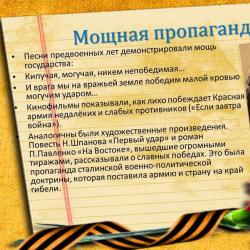The school director called the application for Tatar dopuroki a “misunderstanding.” The process has begun: the prosecutor's office prohibits teaching the Tatar language without parental consent Parents' consent to the choice of language of instruction
“We had a misunderstanding. We have already sorted this out. This is social media, you know? Whoever wants, writes. It is not right. If there was an official statement somewhere, then I would give a comment. And I’m not going to support any rumors. I did not receive an official statement; there were no statements to any authorities. This is very wrong. As a school director, no one approached me saying that we were doing something wrong. What is discussed on social networks is everyone’s right. Sorry,” she said.
October 4 "VKontakte" resident of Kazan Olga Yangolisina published a post saying that parents of students at school No. 119 were given applications for in-depth study of the Tatar language. Refusals to fill out, it was written, “will not be accepted.” Similar information was published by the Telegram channel “Failure”.
A few hours earlier, it was “unfortunate” that the prosecutor’s office of the republic, on instructions from the Prosecutor General’s Office, was conducting a check on the voluntary nature of studying national languages. A letter was published on the letterhead of the Vakhitovsky district prosecutor's office, which, according to the message, was received by educational institutions. It reports that the regional prosecutor's office gave the task "to verify compliance with federal legislation on ensuring the rights of citizens to voluntarily study their native language from among the languages of the peoples of the Russian Federation and the state languages of the republics that are part of the Russian Federation."
According to the letter, by October 2, schools had to provide curriculum, weekly class schedules, and regulations on the state language approved by the director of the educational institution. The directors were required to write to the prosecutor's office what state languages are being studied, the number of hours allocated for Russian, Tatar and native languages, and whether the opinion of the parents of schoolchildren is taken into account “on the choice of language, languages of education, including when adopting curricula,” and whether there is written consent from the parents for studying the native and Tatar languages, how many children are taught separately in Tatar and Russian groups.
The Russian Ministry of Education and Science will check compliance with the rights of citizens to voluntarily study the state languages of the republics and their native language. Rosobrnadzor and the Prosecutor General's Office joined the inspection. What caused such close attention and is it true that the Russian language in some regions is being squeezed out of the school curriculum?

Why did this happen? Schools in the regions have the right to add native languages to the schedule. True, without reducing the mandatory part of the curriculum, which is allocated 80 percent of the time. Relatively speaking, the school is supposed to spend 600 hours a year in mathematics, Russian, physics, chemistry - this is the law, and the school can spend another 120 hours on local history, native language, logic, law, or adding lessons in the same Russian or English. This variable part is necessarily discussed with parents, and all curricula are approved by the school’s governing council. Some schools not only used almost the entire reserve of hours exclusively for the native language and literature without any consultation with parents, but also “got into” the main part of the plan, cutting hours for compulsory subjects.
They didn't ask mom
As explained by the Ministry of Education of Bashkortostan, the academic subject “Bashkir language” is studied by schoolchildren on a voluntary basis at the choice of parents. No more than two hours per week, graded.
It is impossible to completely abandon the Bashkir language, says Rushana Ibraeva, a parent of Ufa school No. 5, on the Internet.
In our 5th grade at gymnasium No. 91, two Bashkir lessons were left out. If you go to sort it out, there will be a conflict again,” writes Gulshat Davletova.
But Ufa resident Natalya Panchishina believes that everything depends on the integrity of the parents: “The Bashkir language, as the state language, is included in the variable part of the curriculum. And parents choose either it or another subject. In some schools, this is what they did. This is a question of the integrity of the parents. And only ".
We have national schools where the number of hours of Russian is less, and the number of Bashkir hours is greater. But these schoolchildren take the Unified State Exam in the Russian language on a general basis, says accredited Unified State Exam expert Ilyana Aminova.

Infographics: "RG"/Mikhail Shipov/Leonid Kuleshov/Irina Ivoilova
Twos are canceled
In Chuvashia, as in Bashkortostan, both Russian and Chuvash are the state languages. As RG was informed by the Republican Ministry of Education, in all schools the Chuvash language and literature are studied using hours allocated to the subject areas “native language and native literature.” In schools with Russian as the language of instruction, the study of the Russian language and literature is allocated 5 - 9 hours per week, the Chuvash language - 2 - 3 hours.
In schools with a native language of instruction, Russian is taught 5 - 9 hours a week, and Chuvash up to 4 - 5 hours. The Chuvash language is studied in schools as a compulsory language. At the same time, local authorities nod at foreign languages, they say, they are also forced to learn them. And nothing!
It is clear that for some schoolchildren learning Chuvash can be a problem. Therefore, the local Ministry of Education allowed not to grade this subject. If the parents so wish. In addition, schools are required to develop individual educational programs. Including multi-level ones.
In schools in Chuvashia, the hours allocated to Russian language and literature have been retained in full. Moreover, in a number of schools, additional hours are traditionally given in Russian, notes the Minister of Education of Chuvashia, Yuri Isaev.
Where schoolchildren do not have to study the state language of the republics, more hours remain in Russian and vice versa
There is no oppression of the Russian language in the national republic, officials say. On the contrary, from year to year the share of school graduates in Chuvashia who did not pass the Unified State Exam in the Russian language turns out to be lower than the Russian average. For example, in 2016, the share of Chuvash schoolchildren who failed the Russian language exam was 0.28 percent, while in Russia it was 1.0 percent. In 2017 - 0.15 percent and 0.54, respectively.
Called in hours
In Tatarstan for more than twenty years, whether you want it or not, whether you are Tatar or not, learn Tatar. The Constitution of the Republic allows this for schools. And just like in other regions, the native language is introduced through the variable part of the program, but the opinions of mothers and fathers are not asked. Parents have a choice of only two “types” of Tatar. It is taught either as a native language or as a foreign language. Moreover, the basics of Tatar are also taught in kindergartens.
An equal amount of time is allocated for studying both languages, the Minister of Education and Science of the Republic of Tatarstan Engel Fattakhov has repeatedly emphasized.
Everything has been agreed upon with the Russian Ministry of Education and Science. Parents are not against their children fluently speaking Russian and Tatar, as well as English, the minister is sure.
In addition, about 150 million rubles are allocated annually from the republican budget for additional study of Russian (each school can add one more lesson to the schedule if it wishes).
What to do if a child moves from another region? He is taught according to an individual program. So even in 9th grade you can have a Tatar textbook for first grade.
The problem is that they teach not colloquial, but academic Tatar, and it is very difficult,” says a teacher of Russian language and literature at one of the Kazan schools. - Even Tatar parents can’t cope with homework, not like Russians. Those who have children in primary and secondary school are most indignant. Children do not master speech, their vocabulary is small. And high school students simply don’t take these classes. True, when a mandatory Tatar exam was introduced for 9th graders, they began to attend classes better.
Difficulties are also associated with the fact that the training programs are not synchronized. For example, in Tatar lessons we started learning adverbs, but we haven’t studied them in Russian yet... There are other problems.
And just like in Chuvashia, local authorities nod to the results of the Unified State Examination in the Russian language: the average score in Tatarstan is growing. Therefore, Tatar does not interfere with the development of Russian. To which some parents object that high scores in Russian are the merit not of the school, but of the tutors.
As Gulnara Gabdrakhmanova, head of the department at the Marjani Institute of History of the Academy of Sciences of the Republic of Tatarstan, told RG, attitudes towards teaching the Tatar language have been measured for many years.
The majority of respondents say that Tatar should be preserved as a compulsory subject,” she said. - A third say that the teaching system needs to be changed - either make it optional or reduce the hours. The remaining 20 percent cannot express their attitude. Research shows that the situation has changed dramatically over the past 20 years. During Soviet times, people were embarrassed to speak Tatar. It turned out that now even Russian speakers insert Tatar words into their speech. Today it is fashionable.
While the number was being typed
The Ministry of Education and Science of Tatarstan reported that “a decision was made to bring, from January 1, 2018, the volume of studying the Russian language to the volume recommended by the Ministry of Education and Science of the Russian Federation.”
Competently
Olga Artemenko, head of the Center for Ethnocultural Education Strategy of the Federal Institute for Educational Development:
If we look at the standard, for example, of primary education, it turns out that there is a range in the norm of school hours allocated for studying subjects. The number of training sessions over 4 academic years cannot be less than 2904 hours and more than 3210 hours, and the school may have several curricula for programs. The difference over 4 years is 306 hours, and per year 76.5 hours. Where schoolchildren do not have to study the state language of the republics, more hours remain in Russian and vice versa. Parents from Tatarstan are asking the question: why do children living in Moscow have more hours to study Russian than our children, and when entering universities everyone has the same rights? The second aspect of this problem comes down to the question of why the same number of hours are allocated to the Russian language as to the Tatar language, and sometimes even an hour more. Why did Russian become the state language of the republic, and not the Russian Federation? Why is the Tatar language obligatory to study? Compulsory study of the state language of the republic has been introduced not only in Tatarstan, but also in Bashkortostan, Komi, Chuvashia and a number of other republics. In my opinion, this is an attempt by the authorities to improve the situation with native languages.
The situation with mother tongues has really been getting worse over the past decade. Today, primary school education is conducted in only 12 languages. Even in Dagestan, out of 14 languages, only schools with instruction in Avar remained.
Unfortunately, for schools with education in the languages of the peoples of Russia, no one has prescribed the content of education; no special methods have been developed aimed at developing intelligence and logical thinking in conditions of bilingualism. But the development of these schools over the past 25 years has been entirely under the control of the regions.
In Tatarstan, parents in Tatarstan have already written about a thousand applications refusing to attend Tatar language lessons to school principals, thereby bringing the latter to panic and hysteria. Directors are forced, at the instigation of officials of the Ministry of Education and Science of the Republic of Tatarstan, to prove to rebellious mothers and fathers that they misunderstood the words of the Russian President and that all schoolchildren must learn Tatar without fail. Now the parents are relying on the Prosecutor General's Office and Rosobrnadzor, which, as they found out, will begin an inspection in Tatarstan on Putin's instructions in October.
WHOLE CLASSES WRITE
The words of Vladimir Putin that it is unacceptable to force a person to learn a non-native language, as well as to reduce the time of teaching the Russian language, said on July 20 at an off-site meeting of the Council under the President of the Russian Federation for Interethnic Relations in Yoshkar-Ola, struck a spark from which the flame of parentalism was ignited in Tatarstan resistance to compulsory study of the Tatar language in equal amounts with Russian. And when, on the eve of the school year, the head of state instructed the Prosecutor General’s Office and Rosobrnadzor to check, by November 30, compliance in the constituent entities of the Russian Federation with the rights of citizens to voluntarily study languages from among the languages of the peoples of Russia and the state languages of the republics, inspired Tatarstan parents moved to active action.
To begin with, they began to write to school principals refusal statements from compulsory study of the Tatar language and the transition to a curriculum for schools with Russian (native) language of instruction ( in Tatarstan, as parents have long found out, all schools work according to curriculum with Russian (non-native) or Tatar language of instruction. - "VC"). Refusals are written all over the republic. For example, in Elabuga school No. 8, the first two classes collectively abandoned Tatar...
NO MIRACLE HAPPENED
And the parents were inspired by the example of the mother of a fourth-grader at Naberezhnye Chelny school No. 9 - journalist Alsu Gazizova, who was one of the first to write a refusal statement on September 4 and - lo and behold! - On September 8, I received an oral positive answer from the class teacher: they say, if you don’t want to, don’t teach, let the child draw or read a book in his native language lesson. However, a day later, when the news about the “appearance of the first child in Tatarstan who does not need to learn Tatar” spread at the speed of light across social networks and parents-refuseniks flocked to the schools, the teacher changed her mind. And last Monday, September 11, the mother, the heroine of social networks, was invited to a conversation by the school director.
She told me that I misunderstood everything, referred to and emphasized that Tatar is compulsory. In short, I received a verbal refusal. I have not yet received a written response. But on the same day I wrote complaints to the city prosecutor’s office and Rosobrnadzor,” Alsu Gazizova told Vechernaya Kazan.
The local mayor’s office also had to respond to the “Gazizova effect” that arose in Naberezhnye Chelny, reminding that according to the Constitution of the Republic of Tatarstan, two state languages - Russian and Tatar - are studied in equal amounts. “Therefore, neither the school nor the municipality can cancel the study of state languages. If a student does not attend classes in the Tatar language, then at the end of the school year, due to failure to complete the program, he will not be certified,” the city authorities threatened parents.
In general, the administrations of many schools are now trying to avoid meetings with parents who are concerned about the “language” issue.
In one of the schools, the secretary, having learned about the purpose of the parent’s visit, threw a tantrum; in another, the director simply ran out of his office. There is a known case when the class teacher left the parent meeting when the issue of compulsory Tatar was raised. She took her things and left,” Edward Nosov, head of the public organization “Committee for the Protection of the Rights of Russian-Speaking Parents and Students of the Republic of Tatarstan,” told Vechernaya Kazan.
In some schools, the administration, avoiding conflicts with parents, resorted to a trick by calling Tatar language lessons in the schedule “lessons of the native language,” and Tatar literature simply “literature.”
RUSSIAN MEANS NOT NATIVE
In turn, education officials organized a counter movement: parents are asked to sign consent for their children to study the Tatar language. Another compromise option is to enroll in an elective in the native language, introduced several years ago on the initiative of Rustam Minnikhanov, where you can choose to study Tatar or Russian, say, on Saturday as the last lesson.
Why put additional burden on children? - the mother of a Kazan first-grader, member of the Committee of Russian-Speaking Parents of Tataria, Raya Demidova, is perplexed. - Recently, the Ministry of Education and Science of the Republic of Tatarstan reported that the Prime Minister of the Republic, Alexei Pesoshin, made a decision to increase the volume of Russian language learning from January 1, 2018 to the volume recommended by federal standards. My daughter now has the maximum workload allowed according to SanPiN - 26 hours a week. No more. So, will you have to cut some items? But what if Tatar is a sacred cow among us?
On September 11, opponents of the compulsory Tatar language in schools sent a “parcel” to the Prosecutor General of the Russian Federation, Yuri Chaika.
It contains documents proving that in Tatarstan, schoolchildren for whom the Tatar language is not their native language are forced to study it as their native language, and Russian as a non-native language, said Edward Nosov.
Among the documents sent to Chaika are the results of monitoring school websites conducted by activist mothers.
We studied 100% of school websites in Tatarstan and identified several violations,” said Raya Demidova. - Firstly, not all sites present curriculum plans not only for the new school year, but also for previous years, which means that parents are deprived of the opportunity to find out what and to what extent their children are studying. Secondly, an analysis of publicly available curricula once again showed that in schools where Russian is officially declared as the language of instruction, they actually work on programs for general education organizations with non-native Russian. Finally, judging by the curriculum, in all schools in Tatarstan the “native language” means Tatar, sometimes Chuvash and other national languages, but never Russian. We attached copies of the 90-page curriculum to the letter to the Prosecutor General's Office.
THE PROCESS HAS BEEN STARTED: THE PROSECUTOR'S OFFICE PROHIBITS TEACHING THE TATAR LANGUAGE WITHOUT PARENTS' CONSENT Natalia VASILYEVA  The prosecutor's office warns school principals in Tatarstan and demands that existing violations be eliminated.
A copy of the submission from the acting prosecutor's office of the Vakhitovsky district A. Abutalipov addressed to the director of school No. 51 stirred up social networks last night. According to sources of Vechernyaya Kazan, similar representations were received this week by school heads throughout Tatarstan following mass prosecutorial inspections of schools based on statements from parents dissatisfied with compulsory Tatar lessons at the expense of Russian lessons. The contents of the 5-page document echo Russian President Vladimir Putin's July statement that it is unacceptable to force citizens to learn a language that is not their native language and to reduce the hours of teaching Russian. Let us remind you that the Minister of Education of the Republic of Tatarstan Engel Fattakhov said that the words of the Russian president are not about Tatarstan. Until recently, the prosecutor’s office of Tatarstan adhered to the same position, in contrast to the prosecutor’s office of Bashkortostan, where they immediately said that it was impossible to force children to learn the Bashkir language without the consent of their parents. And now the position of our prosecutor’s office has changed dramatically. The prosecutor’s submission addressed to the director of the 51st school in Kazan states that “teaching native languages, including the Tatar language, without the consent of the parents (legal representatives) of students is not allowed,” however, as the prosecutor’s office found out, Tatar is taught to everyone at school without fail. At the same time, “from the explanation of the director of the secondary school it follows that Tatar is state language and is required to be studied. No separate written consent was requested from parents to study curriculum subjects.” At the request of the prosecutor's office, the school director must eliminate violations and bring the perpetrators to disciplinary liability. Those guilty of violating the requirements of federal legislation, as the prosecutor's office established, are... the head teachers for academic work and national affairs, who improperly handled the duties assigned to them.
It is noteworthy that the order of the Vakhitovsky prosecutor’s office came to light on October 2, on the very day when the same prosecutor’s office demanded that school principals urgently provide curricula, lesson schedules and explanatory notes on the “language issue.” “According to my information, the text of this presentation was drawn up immediately after the arrival of Prosecutor General of the Russian Federation Yuri Chaika in Kazan on September 27, and this template document was sent to all district prosecutor’s offices,” Ekaterina Belyaeva, an activist of the “Russian language in schools of national republics” community, told “Evening Kazan”. In turn, the “Committee of Russian-Speaking Parents of Tatarstan,” citing their sources in the prosecutor’s office, reported that similar orders to eliminate violations in the teaching of the Tatar and Russian languages were received by the directors of many schools in Tatarstan. According to parents, representatives of the Prosecutor General’s Office, who, on Putin’s instructions, will check the voluntary nature of language learning in schools, are expected to arrive in our republic in a week.




